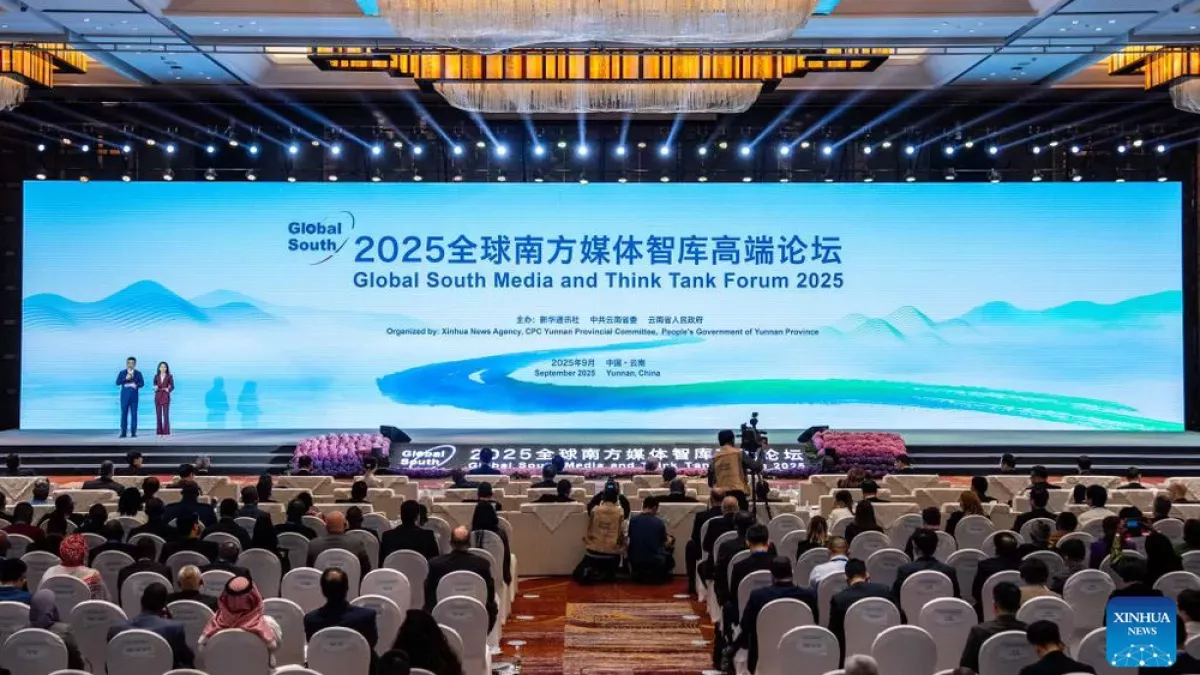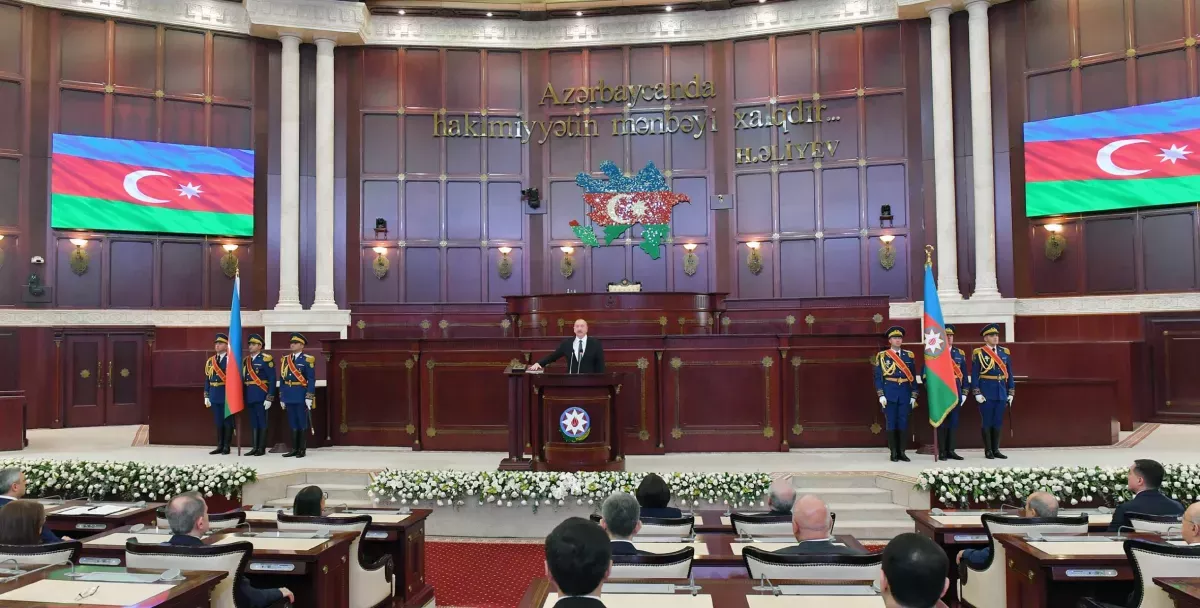How the world fights for the minds of humanity Cognitive warfare
Recently, we have increasingly encountered the concept of “cognitive warfare,” which is generally understood as the struggle for the minds of humanity. In this context, it is hardly surprising that a report on this very issue was recently published by the Chinese state analytical centre Xinhua.
What is particularly noteworthy is that the report was presented to the public within the framework of the Global South Media and Think Tank Forum 2025. The forum’s central paradigm was framed as a call to “break off the shackles of mind, regain cultural confidence” — through the creation of a colourful mosaic of civilisational diversity.

The agenda of the event, which brought together around 500 representatives from more than 260 media outlets, think tanks, and government institutions from 110 countries and regions, as well as international and regional organisations, was defined as “Empowering Global South, Navigating Global Changes.”
The authors of the report also included in its title the notion of “colonisation of the mind,” implying control over thinking that encompasses both “malicious manipulation” and “covert infiltration,” with the ultimate aim of achieving the “long-term erosion” of societies.
In light of this, theorists and practitioners have laid a solid foundation for building a comprehensive support system that incorporates strategic-organisational, value-communicational, and content-technological paradigms. Combined with the use of cutting-edge technologies, including artificial intelligence (AI), such a system may take on a concealed form, yet retain the capacity to reach vast audiences.
An important way of countering this trend—spanning the political, economic, cultural, and spiritual spheres—was outlined in a report by the Xinhua think tank as the “dismantling of the superstition of imposed values and liberation from ideological dependence.” According to the authors, such an approach would lay the groundwork for strengthening truly independent civilisational development. In turn, it would encourage a shift away from the ideology of an inevitable clash of civilisations toward genuine integration, based on exchange and mutual understanding.
It is also worth noting that the digital space of modern life has become a key arena for advancing these tasks. Whether one accepts it or not, this space now plays a decisive role in shaping global thinking, particularly among young people. It is a realm where truth exists alongside distortion and speculation, and where reality is often displaced by fakes and misinformation.
This is why the shaping of young minds is carried out through sophisticated methods, often wrapped in attractive and gentle slogans and mottos. The target of such influence begins to feel that they are adopting a certain point of view on their own, free of external pressure—only to find later that they are unable, or unwilling, to abandon it. In fact, they no longer even consider revisiting this new worldview, unaware that they are turning into a controllable cog—an ideological version of a zombie.
Thus, the ideologues of this approach suppress independent thinking and, in effect, deprive those searching for their place in life of the right to choose. Gradually, “robotic people” emerge on the historical stage, thinking in identical ways regardless of where they live. Behind this façade lies a deliberate severance of youth from the cultural and spiritual roots and traditions carefully preserved by previous generations.
The real figures of our time increasingly resemble the very “mankurts” whose emergence was loudly warned against by the great Chingiz Aitmatov at the end of the last century. He voiced deep concern about the rise of new generations bereft of memory and moral bearings, with a gradual incapacity—or even unwillingness—to think independently, soberly, and rationally.

In the era of the digital revolution, no society is immune to such developments—particularly if it remains a silent bystander. Against this backdrop, the words of Azerbaijani President Ilham Aliyev, spoken during his 2024 inauguration, sound especially relevant. He stressed that at this stage of history, ideological risks recognise no borders, and that raising young people in the spirit of patriotism and national traditions is of paramount importance. “Therefore, the main task is to educate the young generation in the spirit of patriotism and national traditions. We have to approach this issue very seriously, and I am setting this task as a priority. Educating the younger generation means securing our future,” the president noted, emphasising the inevitability of anti-Azerbaijani, anti-Turkic, and anti-Islamic ideological provocations.
This includes attempts by certain vested forces “discriminating against us, and creating an unfounded, false, and negative image of Azerbaijan.” That is why it is vital to raise a generation with pure intentions, committed to national and spiritual values. Only then can the efforts of those seeking to poison young minds be thwarted.
Today, more than ever, it is essential to comprehend what is happening. Recognising that external actors are deploying various ideological tactics to influence the mentality, worldview, and value system of the younger generation will enable Azerbaijan to move forward with confidence. This, in turn, will secure peace, stability, and security for the country and the wider region, ensuring that progress continues without interruption—progress grounded in the defence of national interests.








